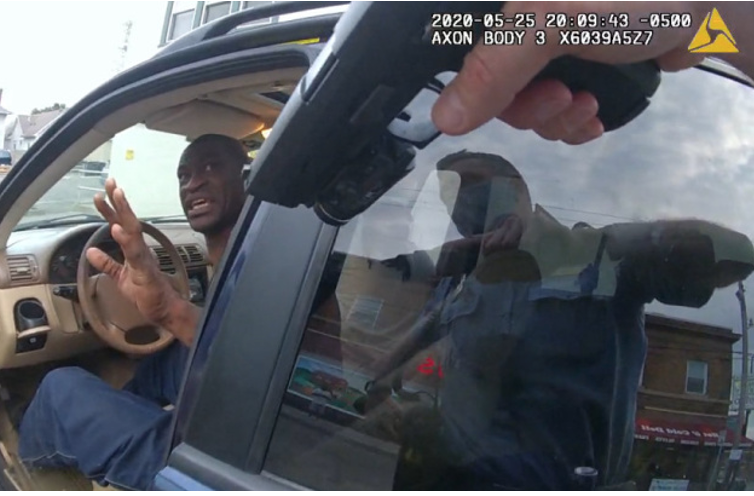CommentsTHE CHAUVIN TRIAL-In more damning, searing testimony on the fifth day of Derek Chauvin's trial for murdering George Floyd, Minneapolis' most senior police officer condemned Chauvin's use of force against Floyd as "totally unnecessary."
Lt. Richard Zimmerman, head of the police department's homicide unit and 36-year veteran of the force, added, “Pulling him to the ground facedown and putting the knee on the neck for that amount of time is just uncalled for.”
Zimmerman, who helped secure the scene after Floyd had been taken away, also outlined the Department's use of force policy and the multiple ways Chauvin et al egregiously flouted it.
"I saw no reason why the officers felt they were in danger if that's what they felt, and that's what they would have to have felt to use that kind of force," he declared, adding their actions would "absolutely" be considered "deadly force."
He also detailed to prosecutor Matthew Frank the well-documented urgency of moving a person handcuffed behind their back out of the prone position, where their ability to breathe is hampered, “as soon as possible."
"Once a person is cuffed, you need to turn a person on the side or sit them up," he said. "If your knee is on a person’s neck, that can kill them.”
On questioning, he noted a handcuffed suspect could remain combative, but the threat level is very low: "They're cuffed - how can they really hurt you?"
And once cuffs are on, "That person is yours," said Zimmerman. "He is your responsibility. His safety is your responsibility. His well-being is your responsibility."
Zimmerman's denouncement of Chauvin's actions was echoed by several other witnesses. Recently retired supervisory Sgt. David Pleoger spoke to Chauvin by phone that night; Chauvin said he "had to hold the guy down" after Floyd "became combative" and then "suffered a medical emergency," but mentioned no psychopathic knee on a suffering neck.
Asked whether Chauvin's use of force was appropriate, Pleoger said, "When Mr. Floyd was no longer offering up any resistance to the officers, they could have ended their restraint."
Also testifying was paramedic Derek Smith, who checked Floyd's carotid pulse and pupils as he lay still under Chauvin's knee: "I looked to my partner. I told him, 'I think he's dead.'" Still, he chose to move Floyd into the ambulance and continue working on him.
"He's a human being," Smith said. "I was trying to give him a second chance at life." Fire Capt. Jeremy Norton testified he met up with the ambulance at an intersection, where he saw Floyd being treated: "He was an unresponsive body on a cot."
Despite the harrowing testimony, it paled before newly released bodycam footage of Floyd's pained, flailing final moments - his terror, his crying, his claustrophobia, the awful baffled dawning he was about to die for a $20 crime he didn't know he'd committed, the heartrending pleading of a reported "Mama's boy" that, "I'm not a bad guy."
Viewing the video - here and here - several jurors broke down in tears. Understandably: It's almost unwatchable.
Our job is to not look away. And to acknowledge how astounding it is that black people haven't yet burned this country to the ground.
(Abby Zimet writes for CommonDreams.org … where this piece was first posted.)
-cw
